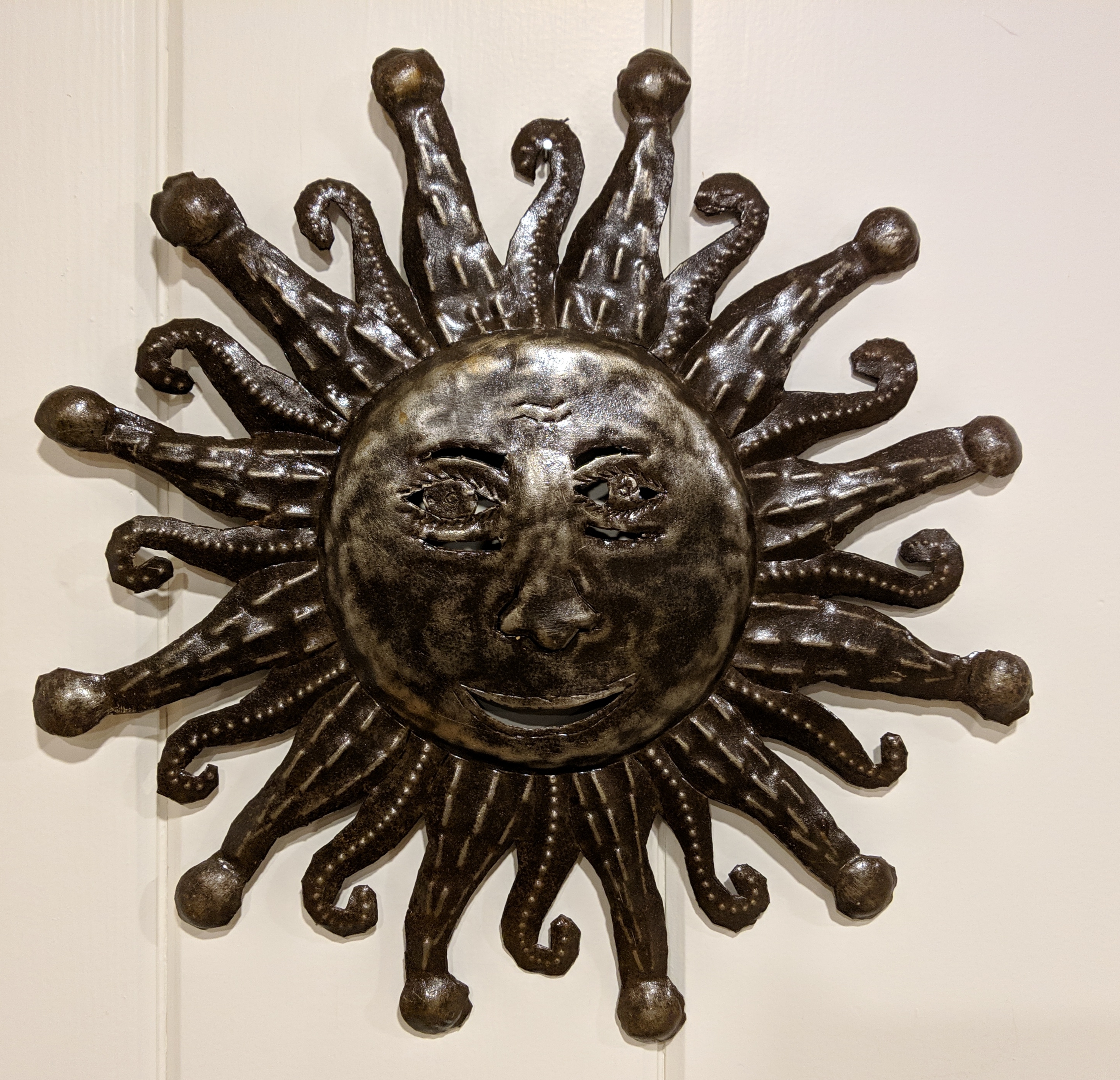- cross-posted to:
- personalfinance@lemmy.ml
- cross-posted to:
- personalfinance@lemmy.ml
Removed by mod
I also doubt that half of the 50% that say they’re on a path to financial independence are actually on that path. There’s no way that many people have enough cash or assets to retire with the current wealth inequality.
Many people recognise that they’re fucked, many others don’t recognise that they’re fucked.
Financial independence isn’t necessarily never work again. Though some definitions include that.
Even still, the article is talking about financial freedom, which even they recognize as a sliding scale
Half of Americans describe “financial freedom” as being comfortable, but not necessarily rich, and 49.3% say it refers to meeting financial obligations and having some money left over each month. About 54.2% define it as living debt-free, and 46.2% believe it means never having to worry about money.
I would be more in the latter part of saying it’s living mostly debt free. Or more depreciating debt free. Aka not house poor and able to manage finances.
Unfortunately the US (at least, I can’t speak to other parts but it seems Europe can be grouped in here too) has abysmal financial education. So many people by into consumerism at such a deep level that they impoverish themselves in it. I’m not totally free of unnessecary spending, but I don’t buy into so badly it puts me in a bad place or in debt.
We have debt. Mainly in our house but we still live below our means and always have. Places that loan you money aren’t looking out for you. And Society looks down on people that set boundaries or take the time to understand the full scope of a contract (such as a mortgage. I have seen it first hand).
Better education and better cultural norms that didn’t prioritize “things” and consumerism would go a long way. And that starts with parents, not schools or teacher. It’s a parents job. We have a lot of lazy parents and it’s now a generational issue.
Availability of credit wasn’t nearly as widespread in even the 80s but now we have a generation of people living in credit debt that haven’t taken the time to teach their kids either. Heck I’m partially at fault too (though my kids aren’t really of age to understand money quite yet)
Better education and better cultural norms that didn’t prioritize “things” and consumerism would go a long way.
So on the one hand I agree with you. On the other hand, consumer spending is 70% of U.S. GDP. If consumer spending takes a hit, we’re all going to feel it.
If this sounds awful it’s because it is. Our economy is not designed to benefit all, or even most.
Would agree. I think what is more at issue is the level of indebtedness. Like the % of people that can’t afford a 500 dollar emergency.
And this isn’t because of inflation.
https://www.cbsnews.com/news/most-americans-cant-afford-a-500-emergency-expense/
Inflation of course has made it worse. But when covid hit and the government started just handing out money and suspending loan payments it became a real problem. Many of those people with the loans took that money and continued spending and acting like the loans were just going away.
Even if the US just wiped all outstanding consumer debt off the table, it’s not going to fix the issue. Because it’s cultural and behavioral. And frankly it’s worrying in that I don’t really see a fiscal or policy that can make it better. People won’t chnage and it means we are heading for more pain (financially).
Even anecdotally it’s shocking to me when people ask how we paid for xyz emergencies but still get into 1000 dollar a month car loans or buy iPhones on credit.
It seems silly but it’s happened most of my adult life. And it’s never not been shocking.
And even the insured are one inevitable illness away from being copayed into poverty.
slavery is a spectrum
And other white-people takes.
Removed by mod
Removed by mod
"MrGeekman
Black people also are not totally blameless when it comes to slavery. Liberals don’t like to talk about it, but Africans sold their enemies to white slave traders. Also, literal slavery still exists in Africa. In fact, most of the metal in our phones was mined by slaves. Most of the chocolate we eat was grown and harvested by slaves. Much of the coffee we drink is grown and harvested by slaves. Sugar too."
Censorship is for Reddit.
Frederick Douglass, arguing for unity among black and white laborers in 1883, said that “experience teaches us that there may be a slavery of wages only a little less galling and crushing in its effects than chattel slavery, and that this slavery of wages must go down with the other.”
Oh shit well I sure hope people organize in the 19th century and stop the things that were actual oppression.
Douglass was still supporting what I’m saying tho, which is that calling yourself a slave because you have a job is incorrect. Also Douglass would shit his pants if a wealthy white landowner complained about being “in slavery.”
If you don’t think that economic slavery is real and exists in modern society, there’s no point in further conversation.
Totally agreed.
If you’re not a sharecropper than STFU
It must be awful to base your personality on outrage.
I hope it gets better for you.
Edit: , then*
No, awful is when clowns horribly misquote history and fail to realize how stupid they are . . .
It’s…a direct quote. I’m not sure how shittalking me is providing any worth to the conversation. Please make one statement supporting your position with information rather than criticism.
No he has a point. You can argue about word choice and semantics but slavery and freedom are not all or nothing things.
His point is based on a discussion in which a wealthy American calls himself a wage slave.
Glad this shit reaction is getting the appropriate downvotes, another whites bad strawman on display
Lmao imagine thinking that’s what that comment means.
There are many different kinds of slavery, chattel slavery is one of many. Indentured servitude was a much less extreme and dehumanizing form of slavery, serfdom was something in between. Slavery is an incredibly broad term that basically means someone is unable to choose their labor, as it belongs to someone else. That doesn’t necessarily mean the person does, like in chattel slavery, just that their work does.
Well it’s a good thing everyone in the US can choose their labor, and that no one making 6 figures is a slave.
I’m 45 and I’ve more or less accepted that short of an unexpected and massive windfall, I will never be able to retire, much less experience “financial freedom.”
I’m 43 and literally had this exact conversation today. I work full time for a major financial institution. This shouldn’t be how things work.
What is actually the definition of “financial freedom”? Having (earned / gained) enough money, so that a person has no need to go to work anymore? If that’s the case, I would expect that number to be much, much lower than 50%.
EDIT: sorry, I just read it in the article. If “financial freedom” just means to work and live more or less without having to worry about financial obligations and what will happen tomorrow, then less than 50% is a rather shocking figure.
Agree. And anyone could quickly go one from side to the other. In need of a expensive surgery? Might lose your financial freedom. Bought an expensive house and lost your job? Goodbye as well.
That’s what a health insurance would be good for. But for many Americans that would equal communism.
Health insurance sucks. I’m all for universal health coverage with the opportunity to pay more for faster service for those who are well off.
Just think - there are tens of thousands of insurance employees who’s job is to calculate risk and develop pricing algorithms such that the company makes money no matter what. There’s no product or value created for humanity. It’s just ensuring that some people who own significant portions of the business keep getting paid.
They screw doctors and patients. Doctors get reimbursed whatever arbitrary predefined rates that were agreed upon during contract negotiations. That’s if insurance gives the green light for the patient to even get the procedure. Why does a middleman decide who gets medical care and how much the doctors should be paid? How is a patient supposed to choose a surgery team that’s all in network?
I get what you’re saying, but fuck insurance. These companies are a parasite on healthcare, housing, and mobility.
Well, yes and no. It should probably be a state-run system or at least a heavily regulated system where the companies are limited in their profit making. No idea how an ideal system could look like. Here in Germany there is a two-fold system, which a generic public health insurance (with several companies offering those insurance services), where every employee pays a certain percentage of his salaries as insurance fee (actually the total fee is split 50/50 between employer and employee). Service is rather basic, but sufficient.
And then there is the possibility to get a private health insurance contract, if your income is above a certain level, which interestingly is (for the most time) lower than that in the general public insurance, but service is much better (e.g. you usually get doctor appointments much faster if you are a “private patient”). The only downside is that you don’t know how much you will have to pay when you get old, and once you are out of the public insurance you can not go back (only if you income falls below the private insurance entry level, which is rather unlikely).
It’s not ideal but it works for the most part and with some exceptions (like new teeth, where you have to pay a substantial part by yourself) you don’t have to be afraid of any health problems, operations or whatever, because that’s all covered. Those insurance companies are treated like public service companies and prices for medication and medical (doctor) services are subject to agreement between the government and the medical associations representing doctors, hospitals etc., but I guess those companies still make profits and the doctors have good earnings.
I get your point, but even with a certain level of protection you’re probably still better off than with no protection at all. However, the system should also not be based on profits and shareholder value, that’s true.
In other news, water is wet
Really? Do they? That’s very interesting. Tell me, is the over half more like 99%?
70% of Americans retire.
I think the stat you’re referencing is for people aged 65-69. That means 30% of those people are still working. That number should be much lower, like 0.
I think you knew exactly what idea they were saying. Agency, the ability to control your own life, varies. Clearly and obviously a regular person in the West has more agency than say a regular person in North Korea. It is not an one-off switch. The ever growing wealth inequality is making the population shift more and more to the slave side of things. That doesn’t mean that you are a slave it means your papa was less of a slave compared to you.
This is why being a lolitarian makes you stupid. It bifurcates slavery and freedom. It defines force to be a specific term, that no one else uses, and declares victory in the game it is playing with itself
It’s really disingenuous to compare US-only data to unrelated generalizations of other countries that function under different cultural and economic systems. But I feel like you already know that.
That’s how society is, brother, literally 1% controls the world in their favor and keeps the wealth, impoverishing the 99%.
I would also venture to say that applies to 90% of us. “Over half” is a fucking laughable fake figure.
I mean, 90% is over half…
Yeah, but it’s marketing jargon to make it seem like less of a deal. When someone says “over half” do you immediately assume they’re talking in the 90% range, or closer to 60%?
Probably the half that make $31k or less.
Looking for a job is insanely depressing when you get to see just how many jobs-white collar, blue collar, fast food, whatever- all pay absolutely disgusting wages one person can’t live of off…
I’m now in a 2 income household with fewer kids as they grow up, and to us it feels more like we are close always, just no hope of ever actually getting there, if that makes sense. Always almost enough.
Which is better than my previous experience but since it’s happening later in life, still wouldn’t expect to ever stop having to earn money by working. I have never expected to retire though, it would take - as someone else noted - a windfall, luck, not effort. Effort has taken us as far as it can.
Clearly the answer is work harder and get a 3rd job. Eventually you’ll be a millionaire!
Sheeit I’m one step above homelessness living off plasma donations.
I’d go for this except I got a false HIV-positive back in '89 and no matter what I do I can’t get it off my blood donation record. :(
I do ok, but all my debt and bills are telling me I need to get on this gravy train
There is $222 in the wallet in the link preview. Just found that interesting.
49.3% say it refers to meeting financial obligations and having some money left over each month. About 54.2% define it as living debt-free, and 46.2% believe it means never having to worry about money.
I’m going to ignore that pesky 100% thing for the moment. Apparently we can’t even agree on what “Financial Freedom” means. Defining the metric you’re polling seems pretty critical if you want a consistent or useful answer. “Over half” is still burying the lede, though - less than one in ten fall into their personal version of that 150% noted above. Aside from the “American families are financially fucked” though, I’m not sure there’s any hard data to extract from this.
--
“Peter don’t ya call me cause I just can’t go; I owe my soul to the company store.”
Don’t also forget that we’re talking about what people say about their own financial position - which may be different from what their financial position actually is. Self-reporting is never accurate, because people report what they feel or are aware of, which is different from objective facts, to a greater or lesser degree.
Between letting individuals define the terms of the question they’re going to answer, and then self-reporting, this “study” goes beyond useless and into detrimental.
I agree, the definition is a real problem. While still interesting the survey is pretty screwed.
I thought financial freedom was being independently wealthy. Idle rich. Apparently I was wrong, it means working class but with some “bonus” money. Maybe still struggling but struggling less than most working stiffs.
How free can you be if you still have to work full time?
That’s a good point. I make well into the 6-digits and the one reason I don’t believe that anyone under 7-digits will ever be “financially free” is because of the for-profit healthcare system. One bad accident or cancer and I’m fucked for a long time if not the rest of my life as is anyone that can’t just shrug off 5 to 6-digit bills.
Now if I were somewhere that offered universal health care and I was making what I was, I’d consider myself to be financially free. So I guess I fall into the 46.2% category.
Same. I’m financially stable. Meaning I can hit a few bumps and I’ll be fine. But I don’t think it’s possible to be ’ financially free’ when at any time I could suddenly have hundreds of thousands of dollars in medical debt.
I can roughly estimate potential pit falls with my home. And home insurance is reasonably reliable for catastrophic scenarios. Even if they aren’t, bankruptcy is still feasible. The same cannot be said about healthcare. Insurance plans are extremely opaque and while they claim to have terms such as ‘out of pocket maximum’ that should**** in theory limit your losses, there are endless stories about how little that holds up when put to the test.
Proper healthcare coverage would be the single biggest impact on American stability. Nothing else is even close.
You can add disability to this. If I can’t work I pretty sure im buggered even if for some reason we get universal healthcare (I guess being disabled, if you can navigate to the point of getting it, you would have medicaid but what comes in every month would not be adequate to stay where I live or such)
deleted by creator
“This is ten percent luck, twenty percent skill, fifteen percent concentrated power of will, five percent pleasure, fifty percent pain, and a hundred percent reason to remember the name.”
Wtf? Of course not. The workforce would be devastated if half of Americans had achieved financial freedom.
Yup. Workers in America desperately need more rights. But so long as there are unpleasant jobs thst have to be done, total financial freedom isn’t really possible. Even under a socialist/communist model.
I’ll feel free when i finally have savings















